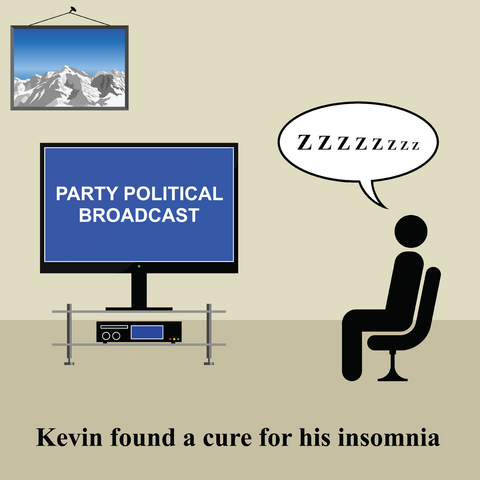According to an article (download here) by Thomas Roth, PhD in the Journal of Clinical Sleep Medicine titled, Insomnia: Definition, Prevalence, Etiology, and Consequences, up to 30% of the adult population in the United States suffer from some form of insomnia or sleep disturbance. That’s 90-million people just in our country who don’t sleep well!
A common question that I’m asked is whether meditation can cure insomnia. As an avid practitioner of meditation – and insomnia! – I can attest to the fact that meditation and mindfulness practices can help to alleviate insomnia. I’m not sure about cure, since underlying factors are usually to blame for sleeplessness.
There are various causes for insomnia and it is beyond the scope of this short post to discuss them at any length. Some people experience sleeplessness due to primarily psychological stressors or disorders, while others experience insomnia with physiological factors as their primary cause. Whichever type of insomnia one suffers from, there are basic meditative methods and practices that can be used in finding relief from loss of sleep.
Part of the problem that those with insomnia experience is that once awake, even if there wasn’t initially intrusive thinking or rumination, the mere thought, “oh no, I’m losing sleep” can be enough to begin a cascade of disruptive thinking that results in prolonged wakefulness. This progression of thinking and worrying becomes a ruminative pattern that worsens the sleeplessness.
How meditation works for those of us who have insomnia is that it helps to stop the thinking that can prolong the episode of sleeplessness by allowing the mind to settle. It also can help to reduce the anxiety associated with losing sleep. I’ve heard other insomnia sufferers say that the worry about sleeplessness can be as bad as the actual event of not sleeping.
How do we begin, then, to work with the mind that can either prevent us from falling asleep in the first place, or awaken us once we’ve settled down into a nice and cozy night’s rest?
We begin by practicing meditation during our waking hours. While that may seem obvious, it’s amazing how many of us don’t think about fixing the broken sink until it’s really broken, or going to the doctor until our symptoms are out of control. In the same way, if we wait until we’re bug-eyed awake during the middle of the night, trying to practice at that point might be ineffective at best. So, begin practicing meditation during your waking hours. You may even find that if you’re tired enough, you’ll get drowsy while practicing. If this occurs, go lie down and take a nap.
As we become familiar with meditation practice, it’s important to apply our practice to as many different situations as possible, sharpening our ability to practice under less than perfect circumstances. So, we practice under all circumstances, getting used to working with our mind informally.
As you’re falling asleep, turn this process into meditation practice. After you’ve settled down, begin your meditation practice and continue until you fall asleep. If you haven’t fallen asleep after 30 minutes, get out of bed, and do whatever it is that you do when you can’t sleep, for example read a book, watch TV, have some hot milk. Then, when you come back to bed, begin your practice again.
If you wake up in the middle of the night, like I do, begin meditation practice immediately. Sometimes this can result in your falling asleep almost immediately. But if this doesn’t happen, then do what you did at bedtime; practice meditating until you fall asleep or until 30 minutes have passed.
Insomnia is no fun! I have been visited by this “unwelcome guest” for the better part of my life. I can’t say that meditation practice always gets me back to sleep. What I can say is that by practicing meditation during periods of insomnia, my meditation practice gets stronger during other parts of my day and my life. So, sometimes insomnia is a bonus – I get to practice!
To get you started, link to the Related Posts (below) on this site and to these links on the methods of meditation and how to use your breath as an anchor.




[…] If you wake up in the middle of the night, like I do, begin meditation practice immediately. Sometimes this can result in your falling asleep almost immediately. But if this doesn’t happen, then do what you did at bedtime; practice meditating until you fall asleep or until 30 minutes have passed. Original article here. […]
[…] posted articles and have had discussions on sleep and insomnia in the past and we’ve also touched on the science of meditation or what science has to say […]
[…] les articles originaux (en anglais : ici et […]
Hi all, is meditation really effective to reduce anxiety?
Here are tips for you to understand more about how meditation copes in healing; http://bit.ly/1MS6GMq.
I heard anxiety leads to insomnia but meditation can heal it, so which type of meditation can you suggest me?
I think you can also improve your sleeping pattern by taking chamomile tea in the evening before you go to bed!
Listening to soft music is helpful for insomnia as it relaxes the tired brain and the body as well.
Hello, I am looking for solution to my sleep disorder as I don’t want to go on sleeping tablet, I better try natural remedy if anyone can help me, thanks!
Try to relax your mind and get rid of any exciting or stressful food in the evening.
This sound meditation is really interesting for you as it will help you relax mentally, get it through opening the https://www.zen-way.com/urls/meditation.
Whenever you are feeling stressed or tense, just consider doing meditation for a few minutes and you can restore your calm.
Doing some writing or reading in the evening can also relax your mind and provides a good sleep at night.
[…] If you wake up in the middle of the night, like I do, begin meditation practice immediately. Sometimes this can result in your falling asleep almost immediately. But if this doesn’t happen, then do what you did at bedtime; practice meditating until you fall asleep or until 30 minutes have passed. Original article here. […]
[…] les articles originaux (en anglais : ici et […]